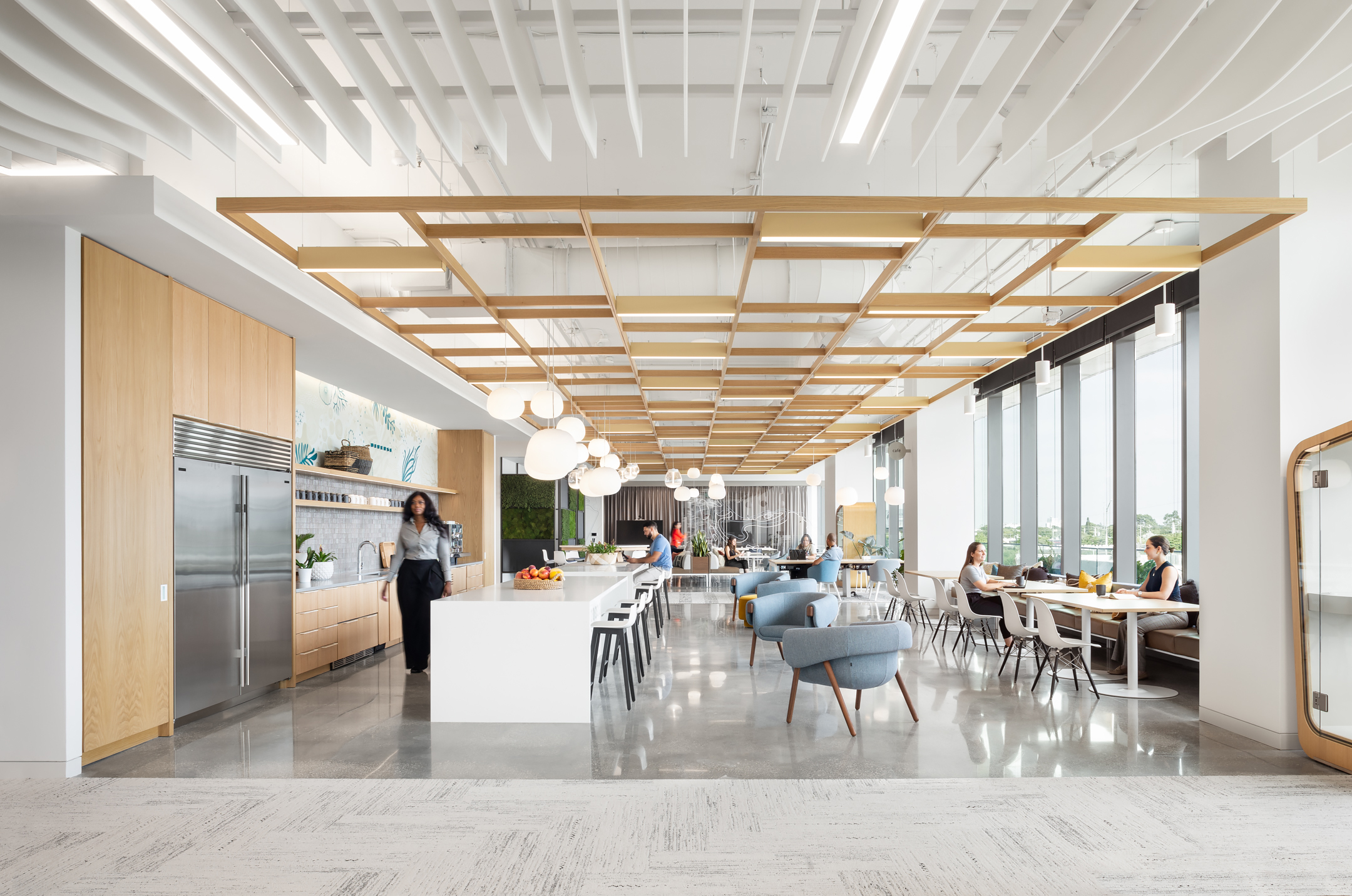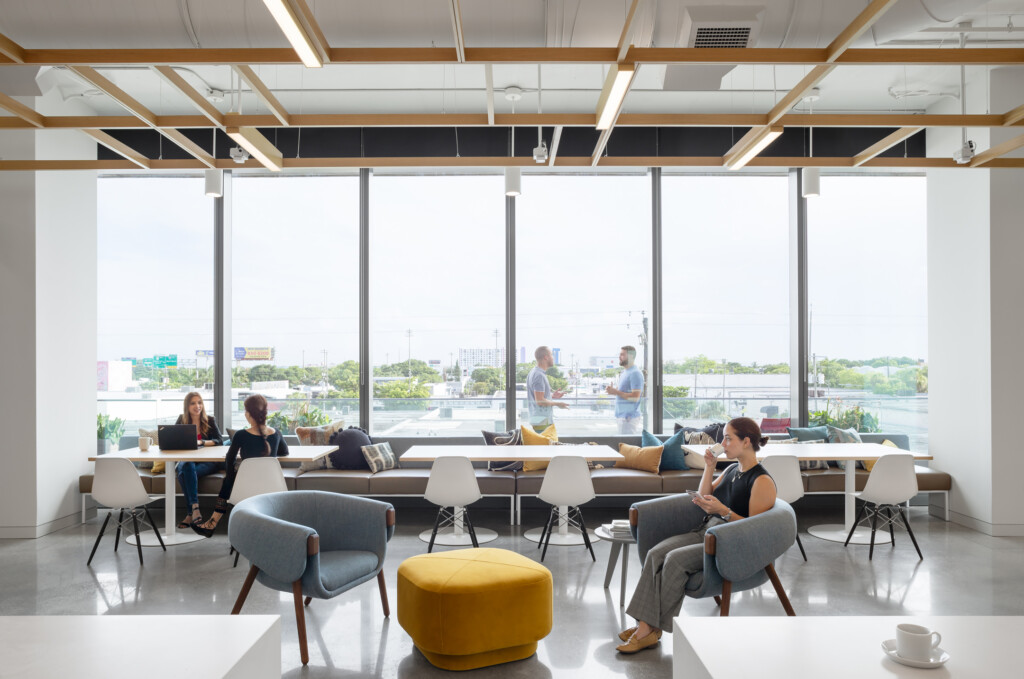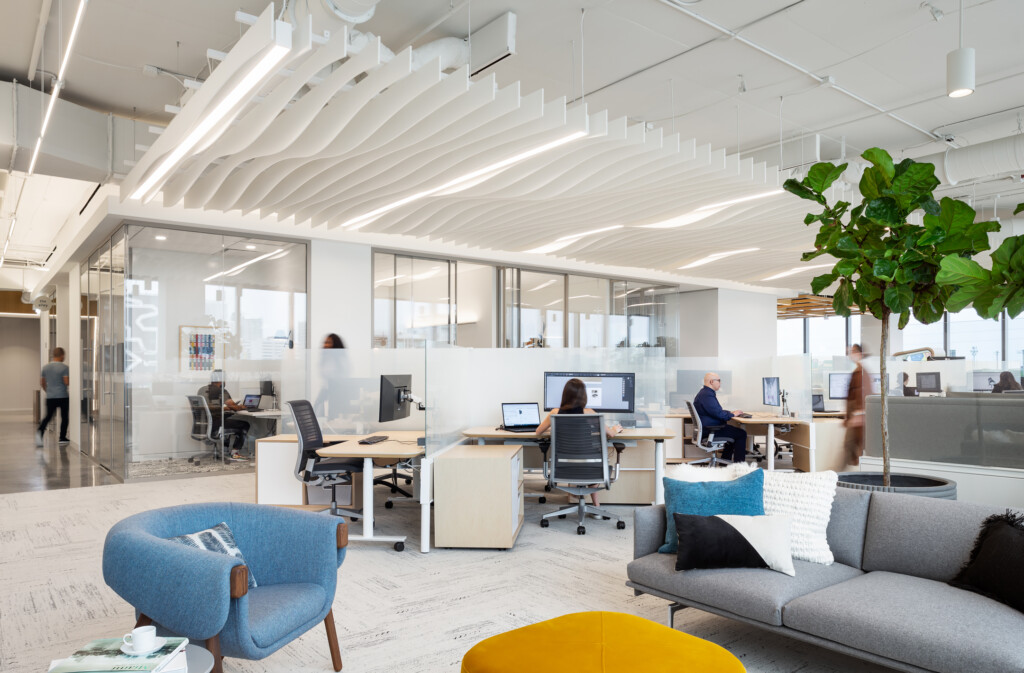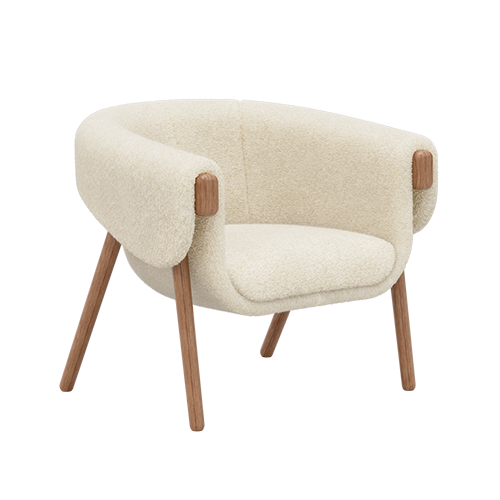
Case Study Gensler Miami
Gensler’s Miami team was well into the process of designing a new office when the COVID-19 pandemic began. Thrust into a remote working environment over the course of a weekend, they had to figure out how to move forward with their own office design while also guiding clients through their own transformations. The moment was a real test.
Although the jump from an environment of physical interactions to virtual ones was
abrupt, they understood that the pendulum would not swing back in an instant. It would
take time for the team to adjust being together again, for various reasons ranging from
safety and health to the balance that remote work brought to some people’s lives.
Considering this new reality and all it demands, they decided not to move forward with
the design we had cooked up before the pandemic.
Instead they reimagined plans for the new Gensler Miami with a decision to eschew
traditional workplace planning methods and go back to the drawing board to create an
office space crafted around two key drivers: purpose and engagement.
The mix of space allocation started to look quite different from original plans. A typical
workplace would have about 50 to 70% of its footprint for assigned work seats (e.g.,
workstations or private offices), with collaborative and support space comprising the
rest. This ratio flipped, where 50 to 70% of the plan would now be assigned to flex
spaces that could serve a variety of purposes, including gathering, collaboration, and
focus. This adjusted allocation empowers teams to select an environment that arms
them with the tools, technology, and ambiance to perform their best work.
It is crucial that teams feel welcome, inspired, energized, and included in the workplace
to increase and maintain engagement. To solve for this, the team crafted an on-demand
workplace, providing more attention to detail for not only visitors, but also for staff. One
way in which this manifests is with implementation of a concierge-style approach to
reception, a strategy that creates a welcoming first impression and serves as an
invaluable resource for issues like seat assignment, technology usage, and hospitality
functions, such as meals and events.

The impacts of climate change are especially urgent in the Miami area. In partnership
with local universities, Gensler is heavily invested in research around sustainability and
resilience with respect to extreme weather events and sea level rise. Brand design is a
key tool with which to tell this story and drive engagement. For the new office, they
created both subtle and attention-grabbing touchpoints throughout the space, using
environmental graphics to serve as a catalyst for conversation around climate action
within our industry. Furthermore, they selected furnishings such as the Monica Lounge
chair, designed by Gensler for Bulo. Including elements from their own product design
practice allowed them to further express their brand while also specifying seating that
knowingly meets all of Gensler’s strict criteria for product design and manufacturing.

Project: Gensler Miami
Date Completed: 2021
Products: Monica Lounge
Content References: Gensler.com
Photography: Devon Banks
